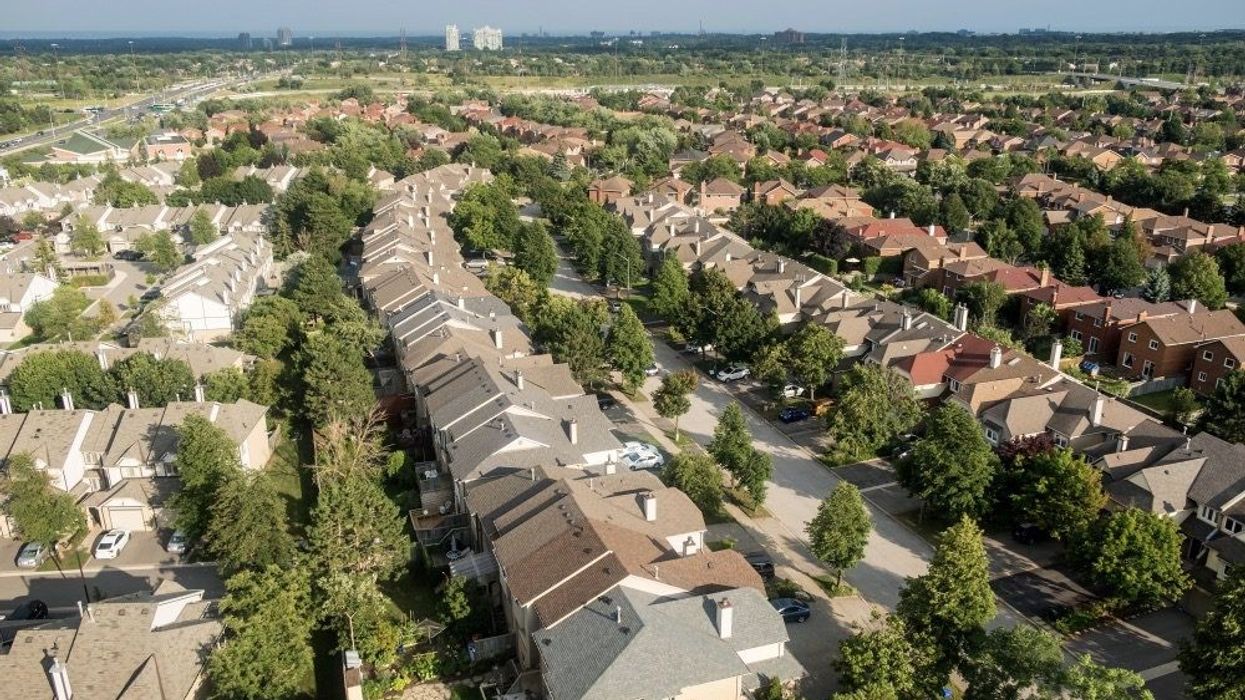National Bank of Canada just confirmed what likely comes as no surprise to Canada’s young people: the country has seen the worst decline in housing affordability in a generation.
According to the latest affordability monitor from the bank, housing affordability in Canada worsened by 4.9 points in the first quarter of 2022, marking a fifth consecutive quarterly deterioration. In fact, the first quarter of the year was also the worst quarterly deterioration in over 27 years.
READ: Freeland: Eroding Real Estate Affordability is "Intergenerational Injustice"
Even more dire, over the last 12 months, the worsening in affordability was the nastiest in 40 years. If that isn’t reason for young would-be homebuyers to (finally) stop comparing themselves to their parents or older siblings -- who may have very well purchased homes before they were 30 -- we don’t know what is.
Ready for more daunting news? On the mortgage front, the mortgage payment on a representative home as percentage of income (MPPI) rose 4.9 points after a 2.2-point increase in the fourth quarter of 2021. Seasonally adjusted home prices increased 5.1% in the first quarter of 2022 from the fourth quarter of 2021; the benchmark mortgage rate (five-year-term) rose 46 basis points, while median household income rose 0.8%.
To simplify things, this means that, for the first time since 1994, it would take more than 50% of income for a representative household to service a mortgage on a representative home in Canada’s main urban centres.

“The blame can be traced in equal fashion to surging home prices and an increase in the mortgage interest rate in Q1,” reads the report. As the authors highlight, the annual increase in mortgage rates was higher than its been in two decades. They point to how most homebuyers have avoided these steep increases in recent months by opting for variable rate mortgages. Now, however, the financing conditions for these are less attractive.
As a result, the Bank of Canada says that we are starting to see the impact of this on weakening resale market data. “Already in May, 60% of consumers answered that now is a bad time to make a major outlay (such as a home, Conference Board data), the highest level on record outside of a recession,” reads the report.
The worsening of affordability was seen across the board, deteriorating in all ten markets covered in Q1. Countrywide, affordability deteriorated 2.7pp in the condo portion, compared to a 6.3pp deterioration in the non-condo segment.
On a sliding scale of markets from worst deterioration to least are Victoria, Toronto, Vancouver, Hamilton, Ottawa-Gatineau, Montreal, Winnipeg, Calgary, Quebec, and Edmonton. This was the fifth consecutive quarter with a worsening in all markets.
“Headwinds will continue to blow against Canada’s real estate market in the months ahead, with the Bank of Canada pursuing its monetary policy normalization process through higher policy rates and quantitative tightening,” reads the report.





















